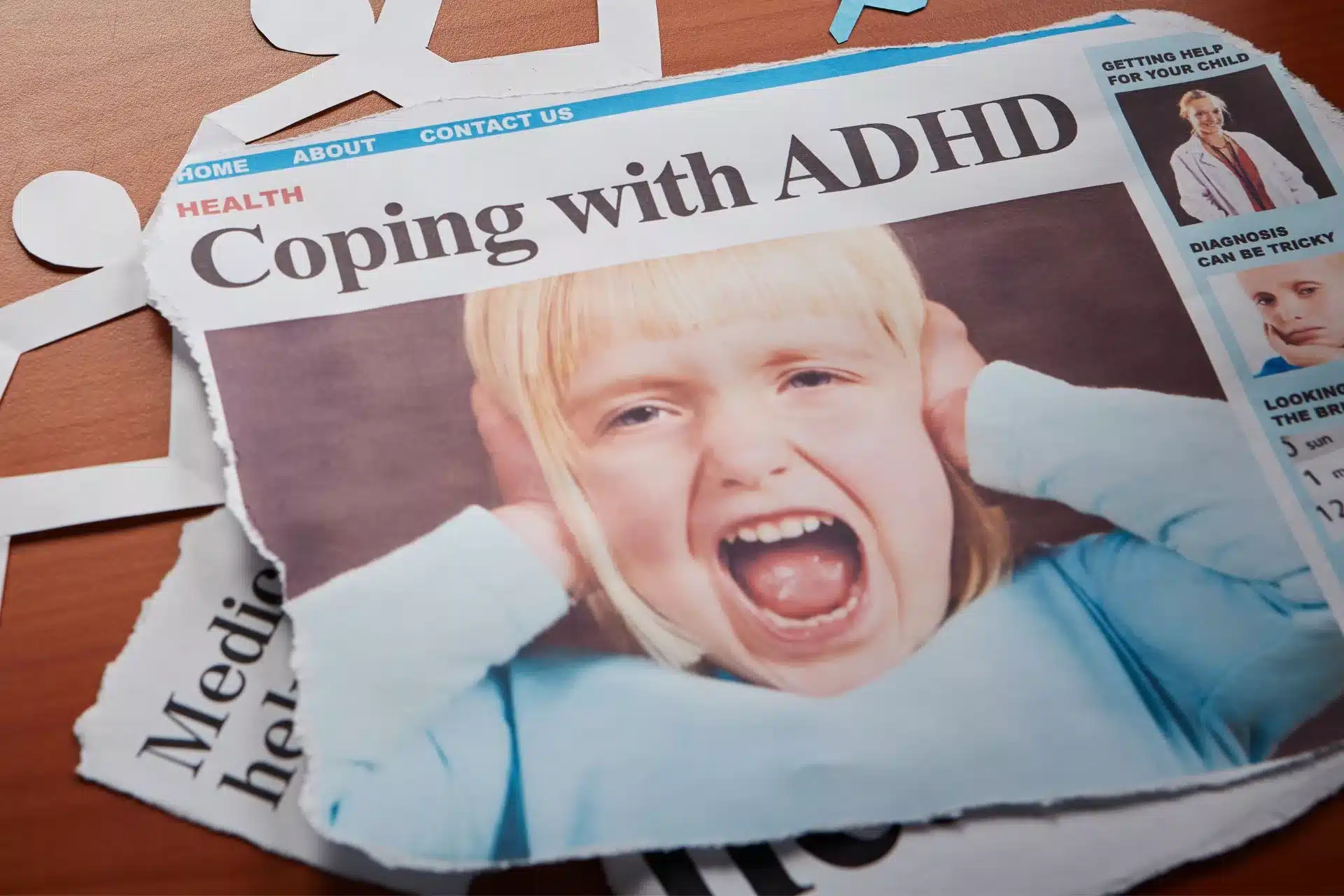ADHD – Causes, Symptoms, Treatment and More

In recent years, the prevalence of Attention Deficit Hyperactivity Disorder (ADHD) has been on the rise, affecting an alarming 1 in 10 school-aged children. This trend represents a significant challenge for families, educators, and healthcare professionals. ADHD is more common than many other childhood health conditions, including cancer, diabetes, and AIDS, combined. Understanding the complex nature of ADHD and its multiple underlying causes is vital for effective management. This article explores the holistic approach to managing ADHD symptoms, delving into its various aspects and the four pillars of holistic ADHD management. There are various causes of ADHD, which can be difficult to pinpoint, but range from genetics to toxins, food intolerances, gut imbalances, nutrient deficiencies, and vision challenges.
Let’s explore the holistic approach to managing ADHD symptoms in children and adults and the significance of addressing this condition comprehensively.
The Growing ADHD Epidemic
ADHD is a neuro developmental disorder that typically manifests in childhood, affecting one’s ability to focus, control impulsive behavior, and causing restlessness and daydreaming. While boys are more likely to develop ADHD than girls, it’s essential to understand that ADHD is not degenerative. With the right approach, children with ADHD can continuously improve, and for many, this condition persists into adulthood.
- 62% of children with a diagnosis of ADHD are using pharmaceutical treatment and 47% are receiving behavioral treatment
- Many people with ADHD live well, work, and contribute to their communities in a positive way
Another important point is that ADHD is commonly accompanied by a range of other psychosocial and physical health conditions, such as anxiety, depression, autism, digestive disorders and sleeping disorders. Whereas ADHD is often stigmatized as a mental disorder, it’s not that simple. ADHD often involves complex interactions of several body systems and physiology.

The Complex Nature of ADHD
ADHD often comes with a host of other psychosocial and physical health conditions, including anxiety, depression, autism, digestive disorders, and sleeping disorders. While it’s often stigmatized as a mental disorder, it’s far more complex. ADHD involves intricate interactions within the body, affecting several physiological systems to help a holistic approach to managing ADHD symptoms.
The Four Pillars of Holistic ADHD Management
1. Dietary Intervention and Changes
Removing specific foods that create inflammation in an individual’s brain and gut is a critical step. This dietary adjustment can significantly reduce the worsening of ADHD symptoms and behavior.
Dietary intervention plays a pivotal role in managing ADHD symptoms. It involves identifying and removing specific foods that contribute to inflammation in the brain and gut, aggravating ADHD symptoms and behavioral issues. In a holistic approach, we focus on nurturing the body with nutrient-dense, whole foods while eliminating or minimizing certain triggers.
Elimination Diets:
One of the primary strategies involves the implementation of elimination diets. These diets may exclude common food allergens, such as gluten, dairy, artificial additives, and excessive sugars. By eliminating potential triggers, we can observe significant improvements in attention, focus, and behavior.
Nutrient-Rich Foods:
Encouraging a diet rich in essential nutrients, including omega-3 fatty acids, zinc, magnesium, and vitamin B6, can positively impact brain health and neurotransmitter function. Incorporating foods like fatty fish, leafy greens, nuts, and seeds can provide the body with the necessary building blocks for improved cognitive function.
Hydration:
Staying well-hydrated is another vital aspect of dietary management. Dehydration can exacerbate symptoms of restlessness and distractability. Ensuring an adequate water intake can support overall well-being.
2. Foundational Supplements
Supporting the body with baseline vitamins and minerals is crucial to maintaining the proper terrain for healthy body functioning and healing.
Supplementing with foundational vitamins and minerals is essential to create the optimal terrain for the body to function at its best. These supplements fill in the nutritional gaps and support various biological processes that may be compromised in individuals with ADHD.
Vitamin and Mineral Supplements:
Depending on individual needs and nutritional deficiencies, supplements like omega-3 fish oil, magnesium, zinc, and vitamin B-complex can be recommended. These supplements not only support cognitive function but also aid in mood regulation and overall vitality.
Individualized Plans:
Holistic practitioners often tailor supplement regimens to each individual’s unique requirements. Comprehensive assessments and blood work can help identify specific deficiencies and guide personalized supplementation.
3. Digestive System Treatment
Rebalancing and clearing the gut of infections or overgrowth and supporting digestion and nutrient absorption are essential for proper body function.
The health of the digestive system is intimately linked to ADHD management. A balanced and well-functioning gut is essential for nutrient absorption, immune health, and overall well-being. Here’s how we address this pillar:
Gut Microbiome Restoration:
In many cases, imbalances in the gut microbiome can contribute to ADHD symptoms. Rebalancing the gut through probiotics and prebiotics can help alleviate digestive discomfort and support mental clarity.
Infection and Overgrowth Management:
Addressing potential gut infections or overgrowth of harmful microorganisms is a crucial step. It can be achieved through targeted treatments and dietary adjustments.
Nutrient Absorption:
A healthy gut is essential for efficient nutrient absorption. Optimizing digestion and absorption ensures that the body receives the necessary vitamins and minerals for optimal cognitive function.
4. Methylation and Genetic Modulation
Correcting specific insufficiencies in biochemical metabolism, nervous system development, immune function, and detoxification can make a profound difference in ADHD management.
The intricate web of biochemical processes in the body can significantly influence ADHD symptoms. Methylation and genetic modulation are the keys to addressing the underlying biochemical factors:
Nervous System Support:
Correcting insufficiencies in the methylation process supports nervous system development. This can have a profound impact on neurotransmitter balance and brain function.
Immune Function:
Methylation and genetic modulation also play a role in immune function. By optimizing these processes, we can strengthen the immune system, reducing the likelihood of infections and inflammation that might exacerbate ADHD symptoms.
Detoxification Support:
Methylation is integral to the body’s detoxification processes. A well-functioning methylation cycle helps the body efficiently remove toxins, which is crucial for overall health and symptom management.
By focusing on these four pillars – dietary intervention, foundational supplements, digestive system treatment, and methylation and genetic modulation – a holistic approach to managing ADHD symptoms addresses the root causes, providing a comprehensive and personalized strategy for individuals to thrive and lead healthier, more fulfilling lives.
Embracing Holistic Therapies for ADHD
By taking a holistic approach to managing ADHD symptoms, its possible to understand your child’s ADHD from this 360-degree view allows for optimal outcomes by treating and re-balancing the root causes. With the proper lab testing, investigation and therapies, your child will be cared for from an individualistic viewpoint and a healing approach from the inside out. This is why holistic therapies that address your child on all levels often yield the most success. As ADHD affects an increasing number of children and families in our communities, let’s embrace it with positivity and hope.







